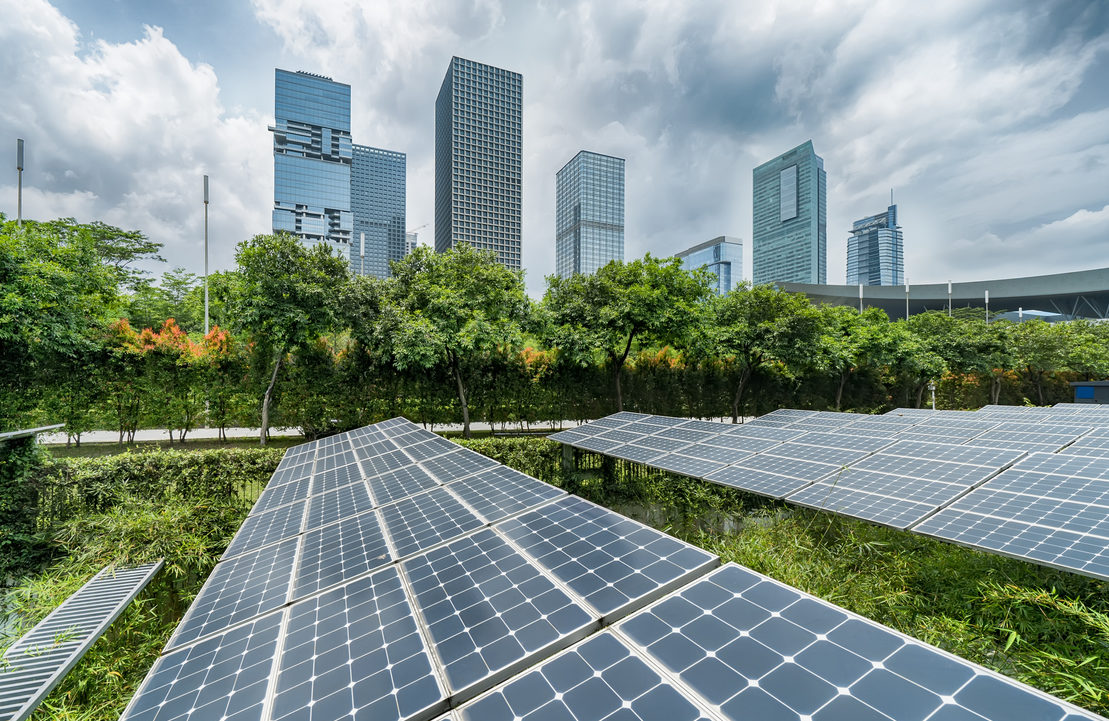New smart energy management technology will result in significant savings for commercial building owners
New smart technology has been developed to improve energy management systems in commercial buildings that will result in significant savings and reduced maintenance for building owners.
Launched today at the 4th annual International Energy Research Centre Conference (IERC Conference) in Cork, The IERC ROWBUST system (Robust Wireless Sensor for Building Usage Technologies), is a smarter and more user friendly building energy management solution that with further development could result in increased savings of between 10-30% in energy costs for most buildings, and up to 70% for older buildings, by improving installation methods and reducing maintenance.
IERC ROWBUST identifies opportunities to eliminate the need for batteries through energy harvesting technology, which will not only result in long term energy savings, but will also significantly improve the reliability and reduce the level of maintenance traditionally required for such systems. Imagine never having to change a battery!
ROWBUST also moves away from the one-size-fits all sensor technology, as a full assessment is given before installation, monitoring parameters like temperature, light and humidity, on where best to place sensors in a building for optimum performance.
And it removes the risks associated with energy management sensors to date, as before the project commences building owners will know in detail the installation and maintenance costs and the savings that can be made, and will be able to make an informed decision on the return on investment.
Professor Tony Day, Director of the IERC said: ‘ROWBUST is a lot more user friendly and economically viable than traditional energy management systems. Air conditioning, space heating, lighting etc. in buildings accounts for almost 40% of energy consumption in most European countries, therefore cost-saving implications are significant, and further positions Ireland as an international leader in finding new energy solutions for global problems.”
Speaking at the conference, Mr. Alex White, Minister for Communications, Energy and Natural Resources, said: “As a country we have created the conditions for a recovery in incomes and public investment. The energy sector is part of that success story and it will continue to help secure our return to economic growth and quality job creation. Some 18,000 of Ireland’s 47,000 energy jobs are in the sustainable energy sector, and up to 30,000 jobs are expected to come from related manufacturing and construction in the next five years”.
“ROWBUST is yet another example of outstanding innovation spearheaded by the IERC, which is supported by Government to bring business and researchers together to deliver energy security, economic benefits, attract new FDI and create significant potential for Irish jobs and exports”.
The ROWBUST system was tested in a commercial building in Cork with an IERC Industry partner, Bilfinger Facilities Management. It demonstrated that 8 hours of indoor light per day is sufficient to self-power a wireless building energy management system controlling radiators to the needs of each individual room
Based on their preliminary deployment findings, the researchers calculated a potential of around €3,900/55,000kWhr saving on energy costs for the building if only a 10% reduction was achieved using the ROWBUST energy system. Under these conditions the projected return on investment is 1-2 years which could be further extended for higher savings.
The researchers also calculated that the energy harvesting element of the ROWBUST system could help to save up to €7,000 per annum on the cost of building energy management by removing the need for maintenance of batteries. These figures assume a standard battery life of 12 months in a building with 84 rooms. Further research in this area would be extended to include more detailed characterisations over the winter period.
Jeff Smith CEO of Bilfinger Ireland Group said: ‘This technology could prove to be a game changer in the area of building energy management solutions. The approach developed by the ROWBUST team highlights the significant potential of technology based solutions to deliver real cost savings for building owners – driving cost savings through energy efficiency is a key commercial focus for Bilfinger, and I’m sure most businesses’.
Dr. Eckhart Morre, Managing Director, Bilfinger HSG Facility Management said ‘Engaging in collaborative research models such as that pioneered by the IERC has helped to develop new insights, and will position Bilfinger to achieve new commercial outcomes for our international business. We believe that working with leading research talent across the Irish research and industry ecosystem will enable us to create new products, services and ultimately new employment opportunities in Ireland’.
The IERC ROWBUST (Robust Wireless Sensor for Building Usage Technology) project team, is a collaboration between the IERC, Tyndall, Cork Institute of Technology, and a number of leading industry partners, including Bilfinger Ireland Group.
Other topics high on the agenda at the IERC Conference included, reducing energy demand, smart cities and buildings, making energy more sustainable and how ‘the internet of things’ will affect the energy sector of the future.


